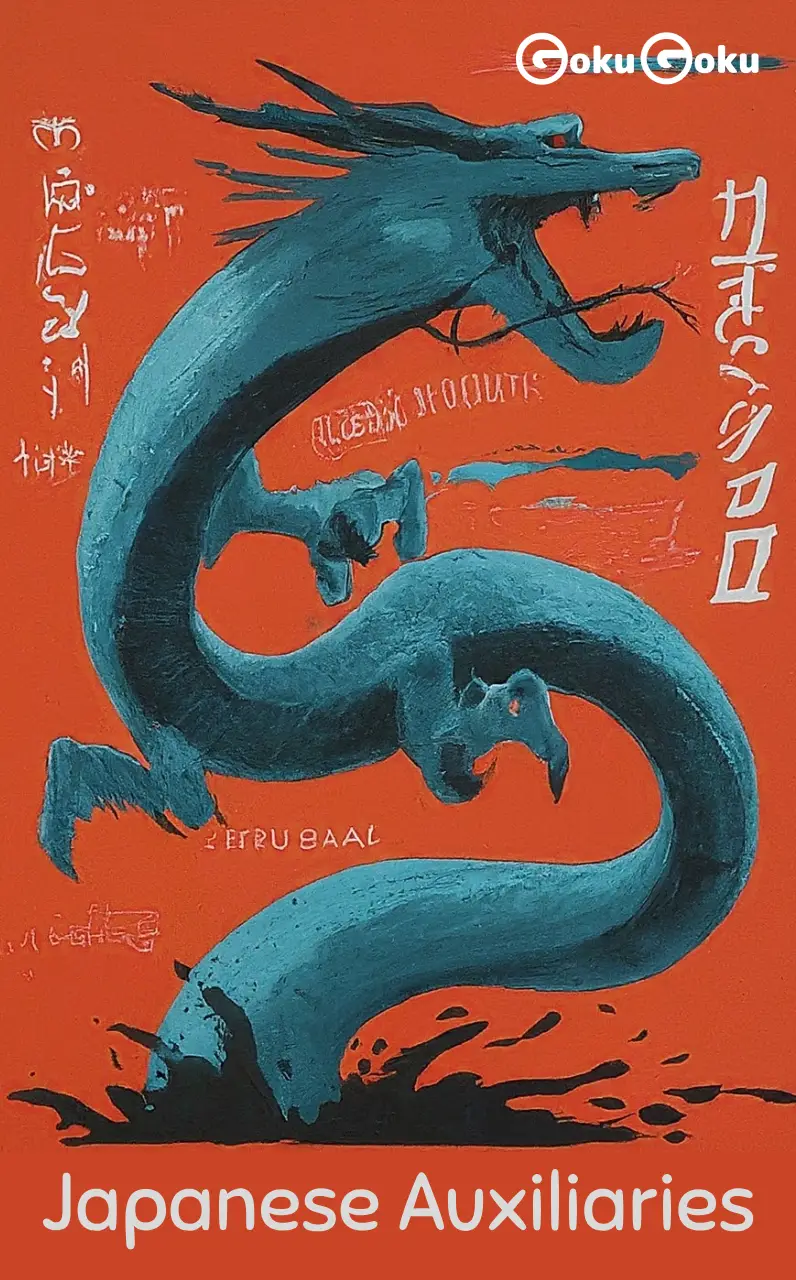ず (zu) Meaning Japanese Grammar - Without
GokuGoku
Get in touch with me6 min reading time
The auxiliary verb ず (zu) is similar to ない. ず translates the negative form (Classical Japanese), while ない is the most used form in modern times to form the negative (modern Japanese).
Nonetheless, ず is currently still used in certain situations and particular contexts. It is therefore useful to know how to recognize it and understand its meaning.
In this post we learn more about the meaning of ず, how it is formed, and when ず is used through real example sentences.
How ず is formed
ず is conjugated in the same way as the auxiliary ない to create the negative form.
This form therefore changes according to the category of verb to which it is applied.
Ichidan verbs
For Ichidan verbs just remove the last syllable る and replace it with the auxiliary ず:
彼は朝ごはんを食べずに仕事に行きました。
He went to work without eating breakfast.
Godan verbs
For Godan verbs you need to:
- Change the last syllable from the う series to the respective syllable in the あ series
- Add ず at the end of the verb
Let's see some examples to clarify this form:
In this example, with the verb 休む (to rest) we need to change the last syllable む (mu) from the series う to the series あ: ま (ma).
Irregular verbs
The irregular verbs する and 来る become respectively せず and 来ず:
How and when to use ず
As mentioned, the form zu (ず) is similar to the form ない. In fact, these two forms have the same meaning: both are used to create the various negative forms of the verbs to which they are applied.
The form ない is the one most used in modern Japanese. In general it is better to use the form ない, since the form ず is part of classical Japanese
The zu form is part of classical Japanese. This was the most used form in past centuries, which is why it can often be found ず in stories and TV series set in Japanese past.
Over time, the ず form has become less common, to the point of being considered almost an archaic form.
The form ず is however still used in various contexts and situations even in modern Japanese.
The ず form is mainly used for:
- Formal situations
- Written material and situations in which you want to show something as old-fashioned or to give a more poetic tone
ずに - without doing something...
The most common expression that uses the form ず consists in adding the particle に after the verb. This form translates as without doing ...:
She said it without thinking.
The expression ずに is common in writing. In spoken language it is more common to use the form ないで
Cooking without looking at the recipe.
The particle に indicates without what the action is performed. In this example, the sentence means without looking (見ず) the recipe (レシピ を), and this is followed by に (which answers the question: without what?).
Here is a sentence from a YouTube Video; we find the irregular verb する do which in the structure with ずに becomes せずに.
The verb used is スキップする: skip.
0:00.00
-1:0-1.00
プロセス全体を理解するためにヴィデオをスキップせずに完全にご覧下さい。
Watch the video in full without skipping to understand the whole process.
A comment on a cult movie on YouTube:

中学生の頃にテレビで見て、それからずっと忘れられずに記憶に残ってる映画。歳をとってから見ると、自然と涙が出る。
I saw this movie on TV when I was in junior high school and it has remained in my memory ever since. When I look at it now that I'm older, tears naturally come out.
- 忘れられずに is a potential form expressed with the suffix られる and has the meaning of
unforgettable,couldn't forget.
Examples of ず
1匹残らず…
Without leaving even one ...
構えもせずに。
Even without the stance.
Similar grammar points in Japanese 📚

